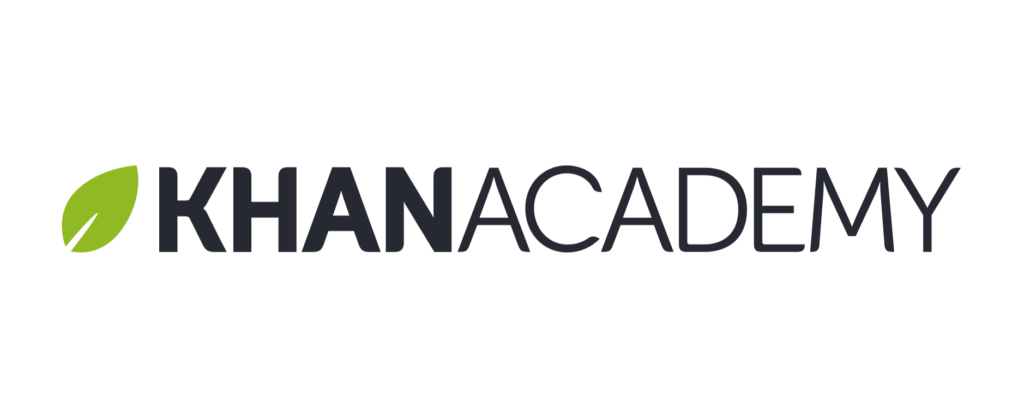This post was written by Joyce Wycoff, the author of several books on innovation and creativity. She also blogs about school innovation at Reimagine School.
Established systems resist change so it only makes sense that Khan Academy has had its detractors. Here are some thoughts from the other side of the story.
Dr. Keith Devlin, Mathematician from Stanford University wrote a Huffington Post blog titled: Khan Academy: Good, Bad, or Ugly? Devlin seems to object as much to the 60 Minutes portrayal of Khan as the lone hero who saves the system. He states that he is “significantly qualified ‘for’” Khan Academy, a rather damning faint praise, agreeing that smart students who like math would love KA, but the rest need “a good, inspiring human teacher.” He seems to have missed the point that the KA videos have allowed teachers to “flip the classroom” so that teachers actually have more time rather than less to work with individual students. Students are exposed to new concepts through videos and exercises at their own pace. In their own study areas, they can pause, back up, repeat as much as they want until they get the material being presented. Classroom time is then used for enrichment, simulations, learning games, group projects or special help.
Education writer Valerie Strauss hosted a guest post for The Washington Post Local by Karim Kai Ani, a former middle school teacher and math coach, and the founder of Mathalicious, which is rewriting the middle school math curriculum around real-world topics. Ani’s post is titled: Khan Academy: The hype and the reality. Ani complains rather bitterly about the quality and style of Khan Academy videos and about a comment Khan made about how he prepares for making the videos … basically he uses a casual, unscripted style. And, he sometimes gets things wrong. However, replacing or reworking a 10-minute YouTube video is a pretty simple thing to do when errors are pointed out.
Ani states, “Sal Khan is a good guy with a good mission. What he’s not, though, is a good teacher.” Khan responded to this post beginning, “We believe that we are in the early days of what we are and feedback will only make that better. I agree with you that no organization should be upheld as a magic bullet for education woes. We have never said that we are a cure-all and think we have a lot to do just to fulfill our potential as a valuable tool for students and teachers.”
The exchange between Khan and Ani focuses at length on the mathematical definition of slope and is probably only of interest to academics. The crux of the issue, for Ani, seems to be commitment to teaching standards. Because Khan’s videos are simple, it is easy to think they are simplistic. Because he doesn’t labor over plans, it is easy to discount the time and effort he has poured into developing the Academy.
After reviewing Mathalicious, this seems to be one of those false “either/or” debates. Ani’s lessons are interesting, well-thought out from both a teacher’s and a student’s point of view, and well-produced. He is obviously passionate about math and finds interesting ways to engage students … from shooting craps to analyzing how the iPod “shuffle” works. Mathalicious charges a reasonable monthly rate for its lessons, probably not enough to get wealthy, but too much for me to pay to casually review. The one that was open was listed as a 120 minute lesson. Obviously, it serves a completely different purpose than Khan’s ten-minute videos. Mathalicious helps teachers enrich their group time; Khan takes the drudgery of basic concepts out of the classroom and into the self-paced privacy of the student’s room. This is a “both/and” solution and these guys should fall in love with each other.
Audrey Watters in her blog Hack Education posted The Wrath Against Khan: Why Some Educators Are Questioning Khan Academy calling it an “explainer post.” She calls Khan a lightening rod and posits that his videos will replace teachers. Everyone talks about the 3000 videos but few talk about all the money being poured into the software that is being designed specifically to help teachers be more effective. Khan Academy is dedicated to teachers having more time and more resources to teach.
The main problem between Khan Academy and the world of teachers may be Bill Gates. Gates has come out against increasing teacher pay for advanced degrees in teaching. It’s easy to see why this would not make him a popular person in the education world. Since Gates called Sal Khan his favorite teacher, Khan is tarred with the same brush. Watters continues to focus on the videos and seems to deliberately ignore Khan’s insistence that the videos give teachers time to humanize the classroom and provide the type of hands-on learning that leads to true mastery.
Derek Muller did his PhD thesis on educational science videos and is the creative mind behind Veritasium, the YouTube science video blog. His videos are fun, exciting, educational … and very different from Sal Khan’s. Muller doesn’t believe that Khan’s science videos actually create learning and it’s worth watching this video about why … and it’s worth watching some of Muller’s videos just for fun. My favorite … so far .. is The Most Amazing Thing About Trees.
As much as I enjoy watching Muller’s videos, they go by really fast and I’m not sure if I’m learning or just being entertained. On the other hand, I am also watching some of Khan’s science videos which go much slower and repeat concepts and terminology frequently. Again, I think it’s a “both/and” thing and maybe only significant testing will determine which is the better teaching method.

